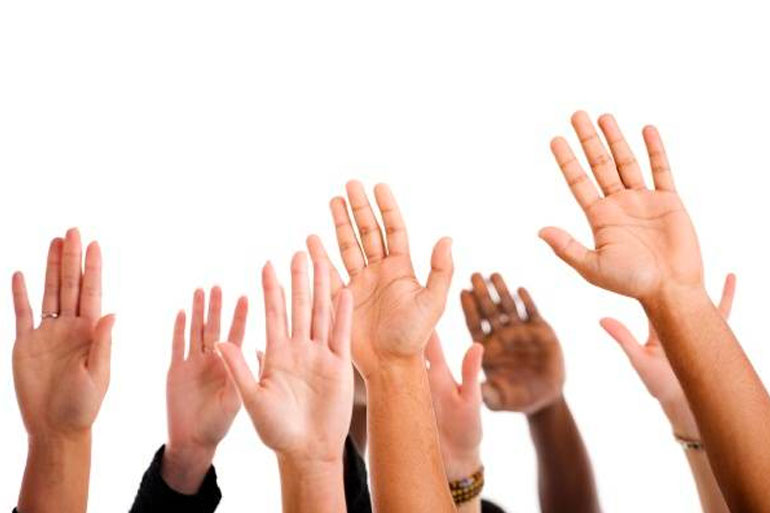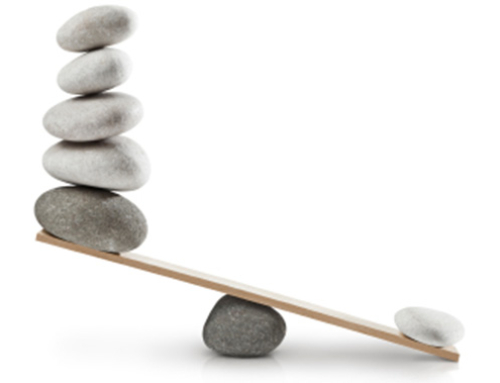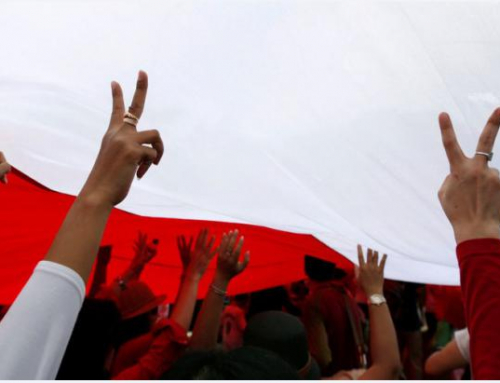Abdessalam Yassine
April 23, 2024
Excerpt from the book: “Winning the Modern World for Islam“
Democracy! The word enchants, the password, the word that solves all our problems!
Democracy is Algeria’s corpus delicti, put to death with euthanasiac pity, for fear that the enemies of democracy —those bearded fanatics and bizarrely costumed women— would commit an outrage.
The simple, blunt question that secularist democrats ask —(I specifically call them secularist democrats, since there are secularists who are not democrats)— is whether Islamists are for or against democracy.
Simplistic reaction-responses range from a slightly shaded “for” to a categorical “against.” Democracy, essentially secularist in essence and birth, deserves from us a more nuanced answer —where our distinctions are not simply a way of begging the question. The reverse question—Are you for or against islam?— might do in a heated media controversy. But in a serious discussion, a two-way negotiation aiming at mutual understanding, the question should be asked in a poised and serene manner.
An Islamist the least bit alert is not going to be cornered into denying the importance of democracy as a system and procedure for managing social conflicts, and any secularist who hopes to win the favor of a Muslim electorate is never going to saw the branch from beneath himself by admitting that he is against islam. The moderate secularist might sincerely answer that he is for islam, understanding islamas one religion among the others, and religion itself as a private matter that has nothing to do with politics.
Instead of giving too much importance to the declarations of a fiery Islamist embroiled in heated controversy, and answering parry with riposte, like a court order, let us ask the Islamists to expound quite calmly on how democracy upsets the Islamic absolute. Instead of being mesmerized by democracy, that mythical bird in these parts, a bird that beats its wings on its home turf, a democrat should open himself democratically to the other and not impose his absolute, his singular notions, on another.
Let us begin our discussion by considering the testimony of authentic democrats speaking about the democratic ideal and what has become of it. Paul Thibaud, former director of the journal Esprit, relativizes democracy by demonstrating the degrading of the democratic ideal:
Pierre Manent has illustrated modern relativism with remarkable clarity. He shows how relativism began by destroying religion, that it is now destroying politics, and that soon there will only exist that degraded form of politics called management, and that it is no longer concerned with values but simply with adjusting the facts, demands, and capacities. The politics of management is the upshot of the degradation of the status of truth in democratic society.(1)
Democracy, degraded at home to the level of management know-how, falls very far:
Democracy is not skeptical, it has a very strong ethical basis; but it is always losing sight of that basis and having to recover it. There is a mechanism in democracy that keeps driving it to lose sight of its proper foundation.(2)
It is not our intention to initiate the trial of democracy. It is enough that we note here that democracy is, by birth, freedom from every absolute except its own, an enemy to every ethic that differs from its own. This radical exclusivity that democracy hides behind democratic toleration, pluralism [etc.] is a virulent mechanism that turns democracy against itself and drives it to destroy its own ethical basis.
Degraded to operational management and eroded by the friction of its machinery, democracy is on the way to losing its footing by losing its morality. The halo that once illumined its forehead no longer exists except in the imagination of its new fans here.
Professor Jean-Marie Guéhenno claims that democracy has fallen into escheat there and that its relatives here are hoping for a windfall, but the elderly aunt they thought was filthy rich is not even solvent.
No one should be surprised that in “advanced” democracies the voters are voting less than ever, since most politicians have lost the respect of their fellow citizens,Japan being just like other modern countries on this score. The political man dreamed of by Enlightenment philosophers should have proved the bastion of truth in the society. . . . But to realize such an aspiration, the collective and democratic search for the general interest, he would have to bet that everyone is capable of bearing the truth in himself, and thus of recognizing it.(3)
The moment the citizens of a democratic country have renounced every truth, even the social truth of general interest, the democracy that formed the selfish citizen loses its right to the respect of the citizen as a non-truth.
In announcing the end of democracy, our critic seeks the means of finding a new wind for democracy by relativizing it as one small truth next to so many other truths. The status of absolute Truth and the elegant magistrate’s cap the old dame’s nephews want her to wear no longer jibe with her advanced state of degradation.
Because it is the most accomplished model in the world where rule replaces principle, Japan is said to be able to both impregnate other civilizations and remain impermeable to them. . . . It accepts the “truth” of others all the more readily for not having renounced its own. Rather than truths, it has methods, owner’s manuals. . . . Anything that “works” deserved to be taken into consideration.
. . . along with national and territorial clearness, we have lost those founding principles that make us a society. At the very least we can hope, imitating the Japanese, to find in our memory and rituals the pale reflection of a society that no longer exists.(4)
Having drifted from—and lost—its principles, democratic modernity recognizes only what “works” and gets results as being meritorious.
Can democracy’s way of proceeding respond to our need of exercising power without making us lose our soul, without running us down to the state of “advanced” modern societies that look for scraps of truths to reassure themselves that their moral decline is not yet complete?





